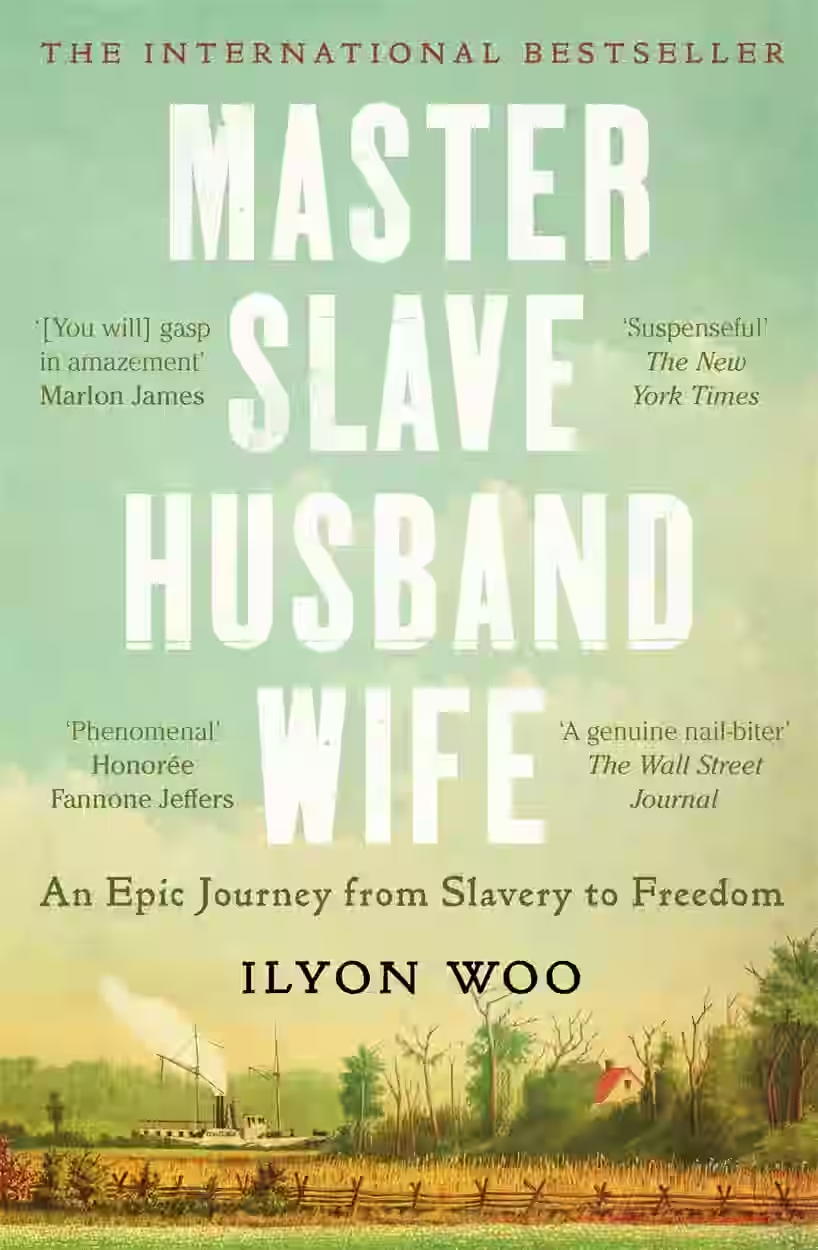
This powerful nonfiction narrative recounts the daring 1848 escape of Ellen and William Craft from slavery in Georgia. Ellen, light-skinned, disguised herself as a disabled white man; William acted as her servant. Their journey to freedom through the North and eventually to England is one of ingenuity, courage, and love. Ilyon Woo’s detailed and gripping account draws on archival research to illuminate not only their story but the broader resistance to slavery and racism. Master Slave Husband Wife is both a suspenseful escape narrative and a testament to the resilience of those who dared to break the chains of bondage.
About Ilyon Woo
Ilyon Woo is a historian and author known for her compelling, deeply researched narratives that illuminate lesser-known figures in American history. Her most recent book, Master Slave Husband Wife, chronicles the harrowing true story of Ellen and William Craft’s daring escape from slavery. Woo’s writing blends rigorous scholarship with vivid storytelling, making historical nonfiction as engaging as fiction. Her previous work, The Great Divorce, explored a sensational 19th-century custody case. With a focus on race, gender, and justice, Woo brings forgotten voices to the forefront, earning critical acclaim for her ability to humanize and dramatize the historical record.
Similar Books
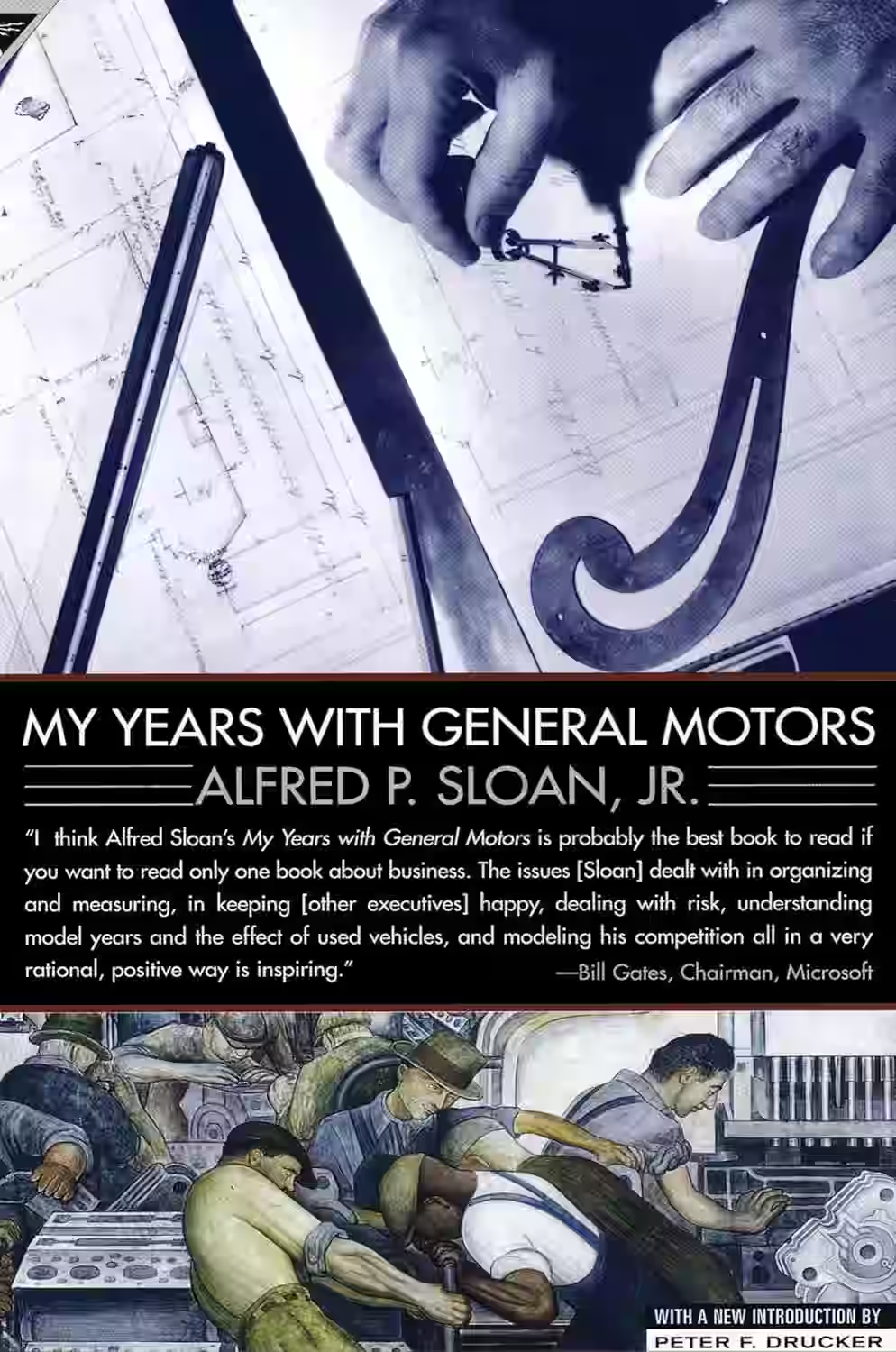
My Years with General Motors
In My Years with General Motors, Alfred P. Sloan recounts his leadership of one of America’s most iconic corporations during its rise to industry dominance. Serving as GM’s president, then chairman, Sloan details how he transformed the company through decentralized management, financial discipline, and strategic innovation. His memoir provides deep insight into corporate governance, organizational structure, and long-term planning. More than a personal narrative, the book is a blueprint for modern business practices and executive leadership. It has been widely studied by business schools and executives, offering timeless lessons on scale, efficiency, and adapting to change in a competitive marketplace.
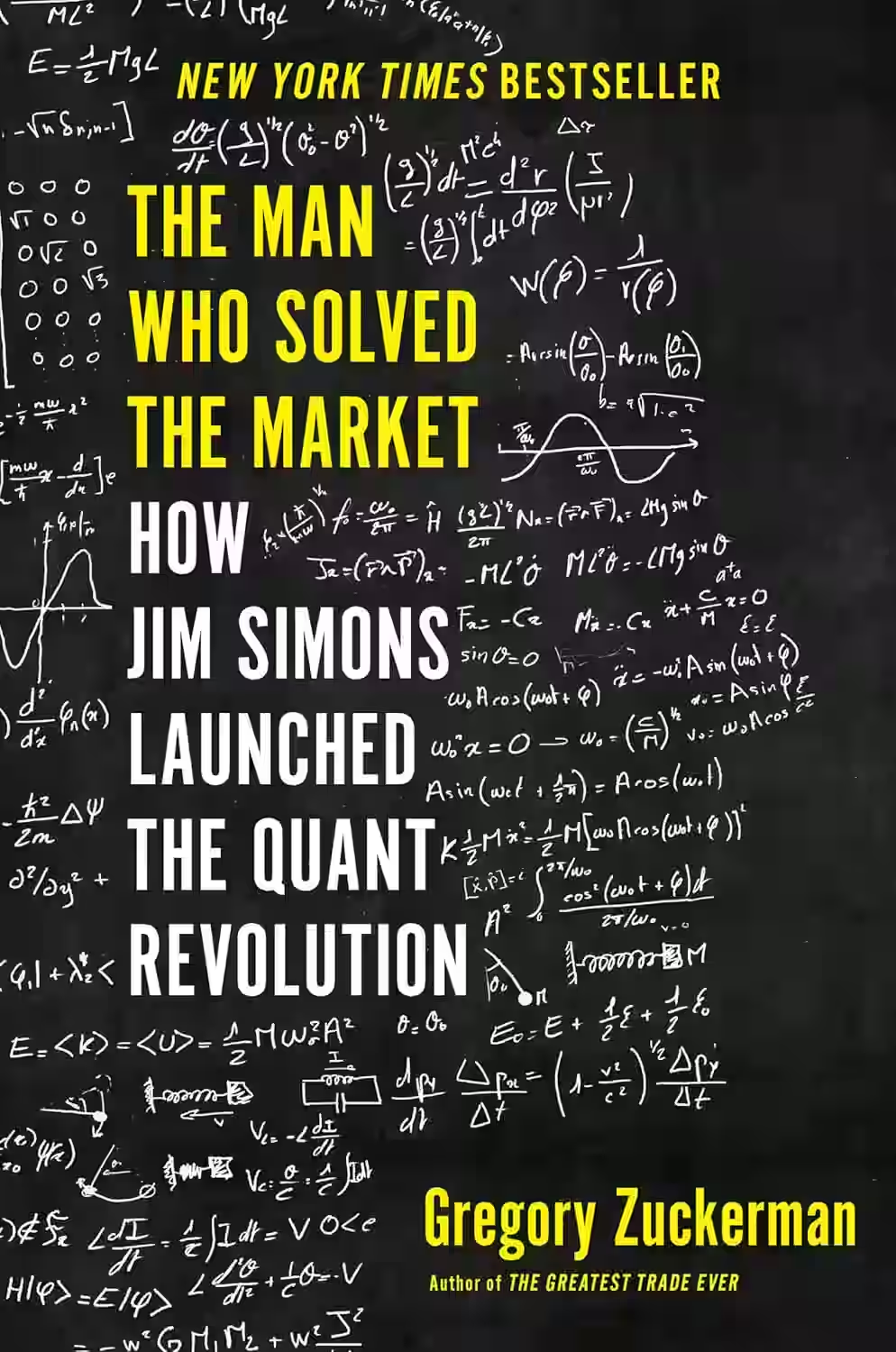
The Man Who Solved the Market: How Jim Simons Launched the Quant Revolution
In 'The Man Who Solved the Market', Gregory Zuckerman delves into the fascinating world of finance and mathematics through the lens of legendary investor Jim Simons. The book offers readers a detailed exploration of how Simons revolutionized investing through quantitative strategies at his firm, Renaissance Technologies. Zuckerman delves into Simons' life story, the challenges he faced, and the groundbreaking techniques he employed to outsmart Wall Street. Through meticulous research and compelling storytelling, Zuckerman provides keen insights into the complexities of financial markets and the brilliance of Simons' approach. This book is a must-read for anyone intrigued by the intersection of math and money.
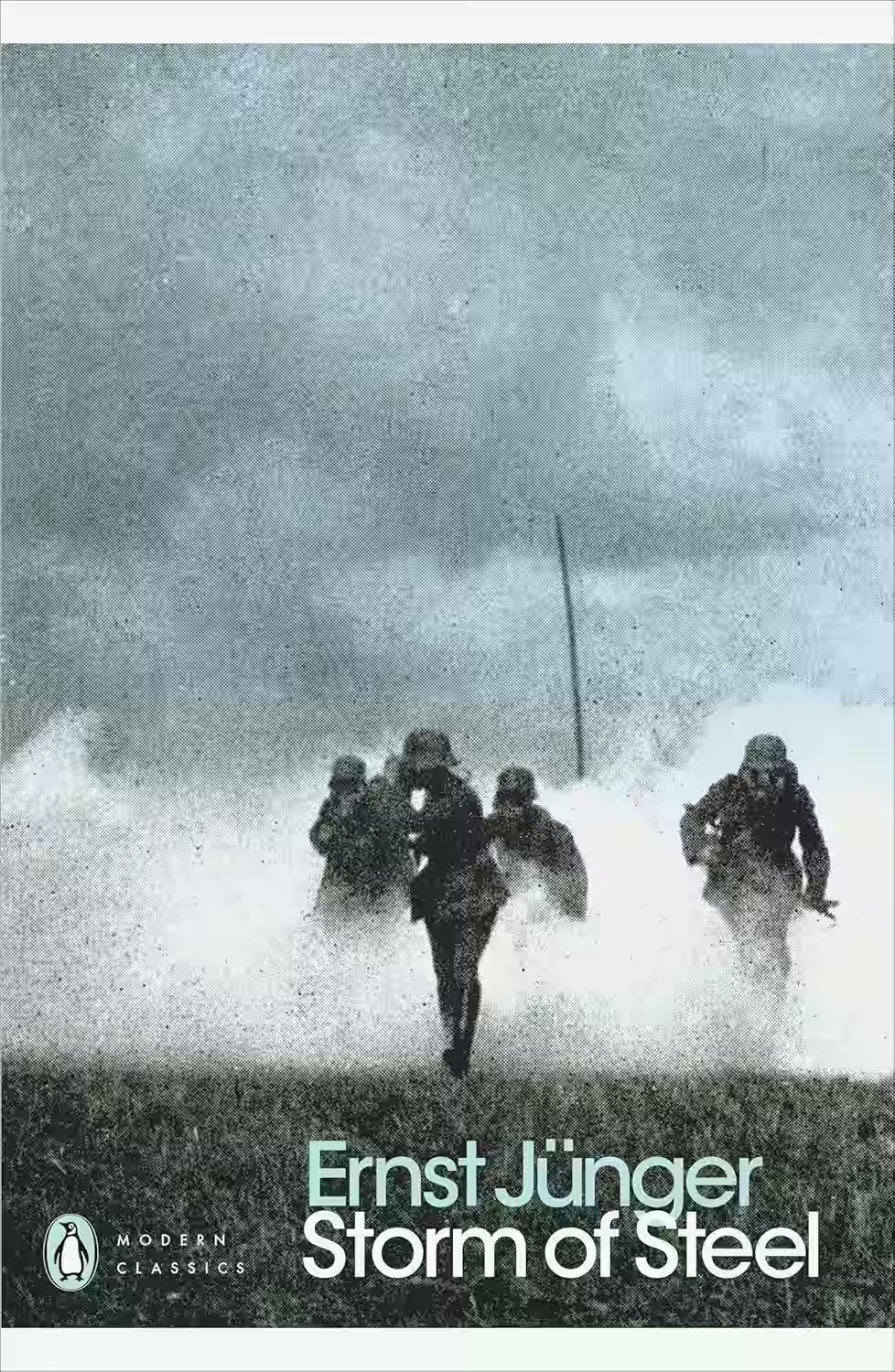
Storm of Steel
by Ernst Junger
In 'Storm of Steel', Ernst Junger vividly recounts his experiences as a German soldier on the Western Front during World War I. Through his unflinching narrative, Junger explores the brutal realities of war, the camaraderie among soldiers, and the psychological toll of constant combat. His writing is both gripping and introspective, offering a raw and unfiltered glimpse into the chaos and horror of battle. Junger's descriptions of trench warfare and the desperate struggle for survival are as haunting as they are enlightening. 'Storm of Steel' is a powerful war memoir that remains relevant in its portrayal of the human condition amidst the ravages of war.
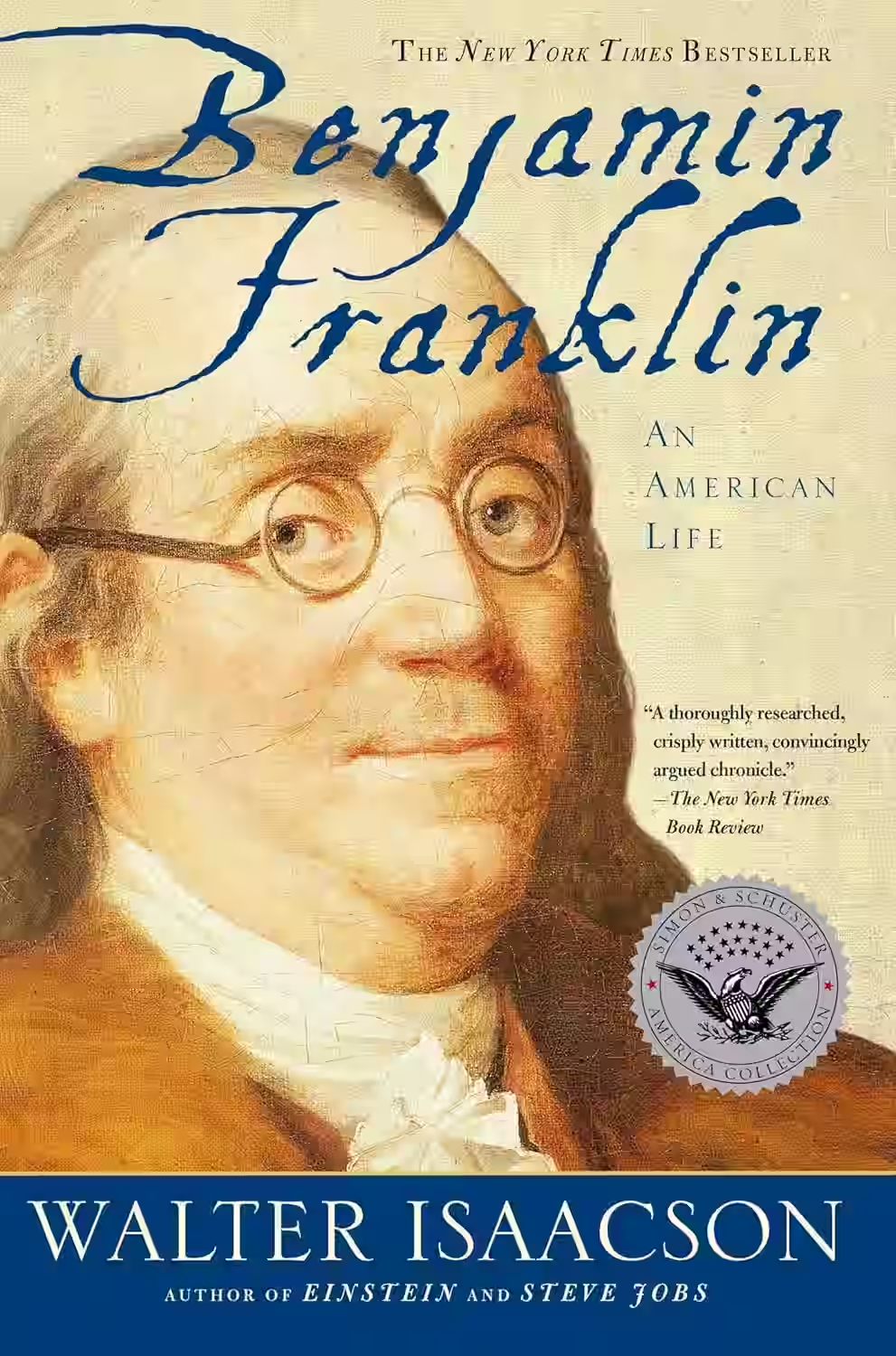
Benjamin Franklin: An American Life
In 'Benjamin Franklin: An American Life' by Walter Isaacson, readers are taken on a captivating journey through the extraordinary life of one of America's founding fathers. Isaacson skillfully weaves together Franklin's roles as a scientist, inventor, diplomat, and statesman, showcasing his immense impact on shaping the American nation. Through detailed research and engaging storytelling, the book delves into Franklin's wit, wisdom, and the complexities of his character, offering a nuanced portrayal of this iconic figure. From his humble beginnings to his key contributions to the Declaration of Independence, Isaacson presents a comprehensive and insightful account of Franklin's enduring legacy.